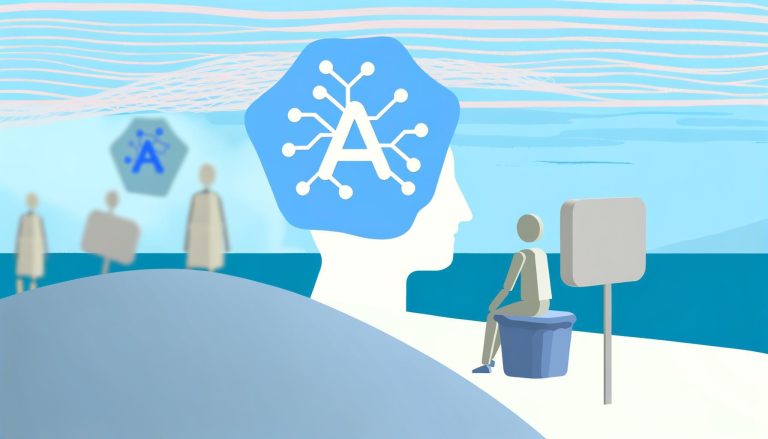Communicating effectively is a fundamental aspect of human interaction, but for individuals on the autism spectrum, social interactions can pose significant challenges. Technology, particularly artificial intelligence (AI), is starting to play an impactful role in enhancing communication skills for those with Autism Spectrum Disorders (ASD). This article will explore how AI is revolutionizing social interactions, offering valuable benefits, and practical tips for leveraging these innovative tools.
Understanding Autism Spectrum Disorders
Autism Spectrum Disorders encompass a range of neurodevelopmental differences characterized by challenges with social interactions, communication, and repetitive behaviors. Individuals with ASD often experience unique strengths, such as excellent attention to detail and strong pattern recognition, but may find typical social cues and interactions daunting.
The Role of Communication Difficulties
Communication difficulties in individuals with ASD can manifest in various ways, including:
- Non-verbal Communication: Difficulty understanding and using gestures, body language, and facial expressions.
- Verbal Communication: Challenges in understanding tone of voice, sarcasm, or abstract language.
- Social Reciprocity: Struggles with initiating or maintaining conversations, and understanding social norms.
AI-Powered Communication Aids
Artificial intelligence is providing innovative solutions to help individuals with ASD improve their social interaction skills. These AI-powered tools can offer personalized support, adapting to the individual’s unique needs and preferences.
AI Chatbots and Virtual Assistants
AI chatbots and virtual assistants can simulate social interactions in a safe, controlled environment. These tools provide practice opportunities and immediate feedback, helping individuals with ASD develop their conversation skills.
Some key benefits include:
- Safe Space for Practice: Users can engage in conversations without the pressure of face-to-face interactions.
- Customizable Scenarios: AI can tailor conversations to cover various social situations, from casual chats to professional settings.
- Real-time Feedback: Immediate responses help users understand and correct social mistakes promptly.
Emotion Recognition Technology
AI-driven emotion recognition technology can assist individuals with ASD in identifying and interpreting facial expressions and body language, enhancing their understanding of social cues.
Features of this technology may include:
- Facial Expression Analysis: AI identifies emotions based on facial expressions, aiding in understanding others’ feelings.
- Gesture Recognition: Technology that interprets body language can help users comprehend non-verbal communication.
- Integration with Everyday Devices: Emotion recognition can be embedded in smartphones, tablets, and wearables for continuous support.
Social Skills Training Programs
AI-powered social skills training programs provide structured lessons and interactive exercises tailored to the individual’s needs, enabling consistent practice and skill development.
Common features include:
- Personalized Lessons: Customized content ensures relevance and engagement.
- Interactive Exercises: Activities designed to practice specific social skills, such as initiating conversations or recognizing social cues.
- Progress Tracking: Monitoring development over time helps to set and achieve realistic goals.
Benefits of AI-Powered Communication Tools
AI-powered communication tools offer several compelling advantages for individuals with ASD, their families, and caregivers.
Individualized Support and Training
AI tools can provide highly personalized assistance, adapting to the user’s learning style, pace, and specific challenges. This individualized approach ensures that the support is relevant and effective.
Convenience and Accessibility
These technologies are often accessible through everyday devices, such as smartphones and tablets, making practice and learning more convenient across different settings.
Enhanced Confidence and Independence
By mastering communication skills in a controlled, less intimidating environment, individuals with ASD can build confidence, leading to increased independence in social interactions.
Practical Tips for Using AI to Enhance Social Interactions
Implementing AI-powered tools effectively requires thoughtful consideration and integrated efforts from individuals with ASD and their support networks.
Start with Familiar Tools
Begin by using AI tools integrated into devices and platforms that the individual is already comfortable with, such as virtual assistants on smartphones.
Consistency is Key
Maintain a regular practice schedule to ensure consistent progress. Make use of reminders and scheduling features to form a routine.
Monitor Progress
Use built-in tracking and reporting functionalities to monitor improvement over time. Celebrate milestones and adjust goals as needed.
Combine with Traditional Therapies
While AI offers valuable support, integrating these tools with traditional therapies provided by professional therapists ensures a holistic approach to skill development.
Conclusion
The advancements in AI-powered communication tools mark a significant step forward in supporting individuals with Autism Spectrum Disorders in enhancing their social interaction skills. By offering personalized, convenient, and effective solutions, AI technology is helping to bridge communication gaps and fostering greater self-confidence and independence. As this field continues to evolve, the potential for positive impact on the lives of those with ASD is immense and promising.
For individuals and families looking to explore AI-powered tools further, consider integrating these innovative technologies into daily routines. Apps like Zenora offer mood and habits tracking, which can provide additional support in managing the day-to-day challenges associated with ASD. These tools, combined with a compassionate and understanding approach, can pave the way for meaningful and lasting improvements in social interactions.





